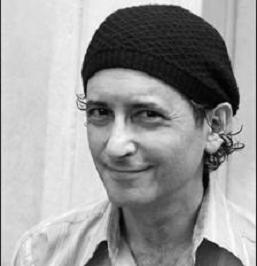Midweek Music Pick: Rap And Classical's Uneasy Marriage
By Alexander Hough in Arts & Entertainment on May 18, 2010 9:00PM
For "Computers Come Alive!," their last concert of the season at the Harris Theater, new-music group Fulcrum Point will once again feature a new hip-hop-infused work by composer-in-residence Randall Woolf.
There's something dissonant about the combining of these two genres. It isn't the first time music by communities excluded from the usually-elitist classical music world was brought into the concert hall. In the early part of the 20th century, European composers became enamored of jazz, coming to America to soak up black culture. That love affair was relatively brief, although jazz played a large role in developing a unique American classical music voice before going on to have a more even give-and-take relationship with art music after World War Two.
Hip-hop has been different, though. As the world embraced jazz, so did classical composers. Hip-hop, which has been around for about as long as jazz had been when it blew up, hasn't received the same attention. Why this is is debatable. Perhaps it's because so much rap music describes social injustice, which, fairly or not, classical music is seen as somehow tied to; there's almost a logical fallacy at play if hip-hop gets performed by an orchestra. Or perhaps it's difficult to produce a worthy product.
Woolf's "Urban Legends," which Fulcrum Point premiered in March, may have suffered from the former, and it definitely succumbed to the latter. Rap's brilliance comes from three places: the content and creativity of the lyrics; the vocal qualities of the rapper, from rhythm to inflection to singing; and the overall musical product, largely the beat/background and how it amplifies the whole song. Unfortunately, the rappers on "Urban Legends" delivered straight rhymes on well-worn topics in monotone, and the beats and orchestral accompaniment were nothing new or interesting. As a whole, it sounded like rap and classical music were on a bad blind date.
Fortunately, "Blues for Black Hoodies," which will receive its Midwestern premiere this Wednesday, is a better piece of music. Some of the lyrics still haven't graduated high school, but the piece is more integrated, particularly the beginning and ending portions. Here the slowly-flowing, barely-evolving strings intertwine with sampled sounds and a spacey beat to give a somber, ethereal wrap to rapper Wordisbon's baritone. As with "Urban Legends," the rapper is recorded rather than appearing live, an omission that does nothing to dispel any elitist notions about classical music concerts, but the musical product achieves coherent integration. It isn't a mix-and-match grab bag; it's something new and worthy.
The other pieces on Wednesday's concert will also be electronics-dependent, from one end of the spectrum, with three pieces that use electronic instruments or recorded sounds, to the other end of the spectrum, with a piece that uses computer software to translate the live movements of composer Christopher Burns into a visual display and music. The Chicago Fluxus Ensemble will also be on hand to perform George Brecht's "For a drummer." As usual, Fulcrum Point is on the cutting edge, and these pieces represent an American premiere, a Midwestern premiere (in addition to Woolf's piece), and a Chicago premiere.
Wednesday at 7:30 p.m., Harris Theater, 205 E. Randolph, $30, $15 seniors and students
